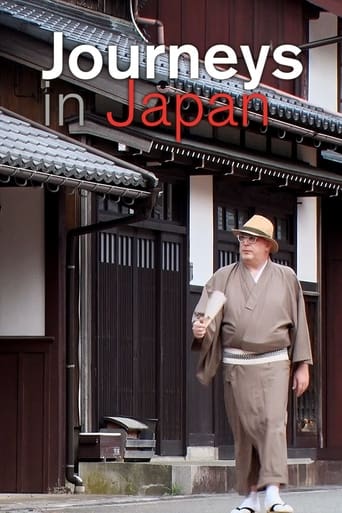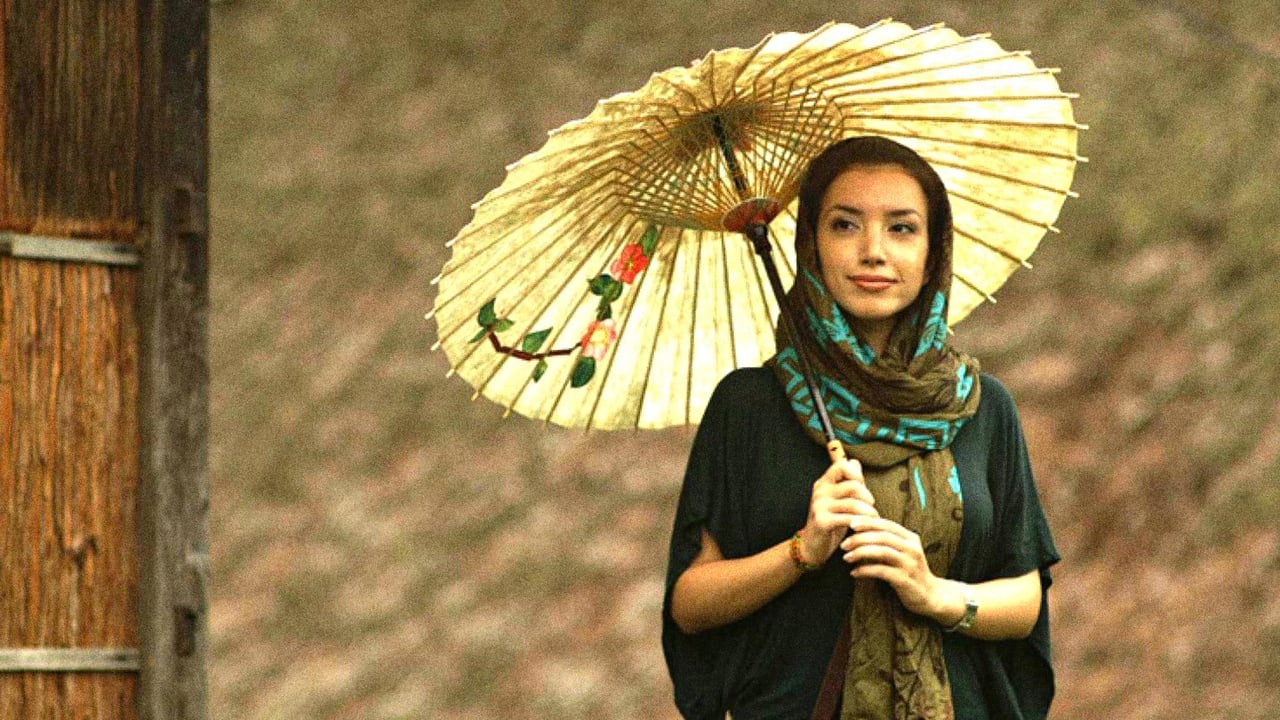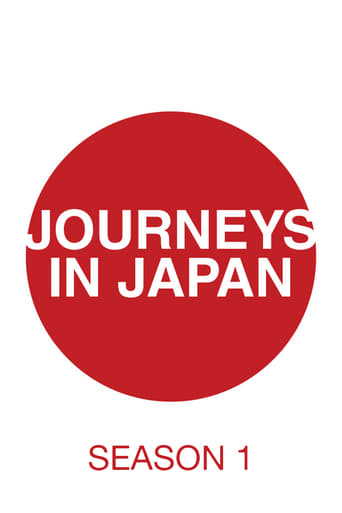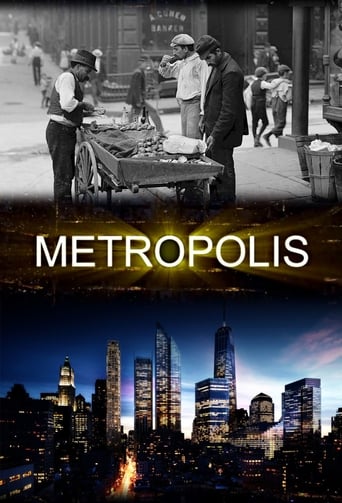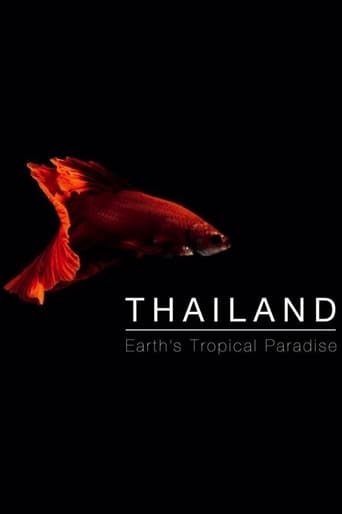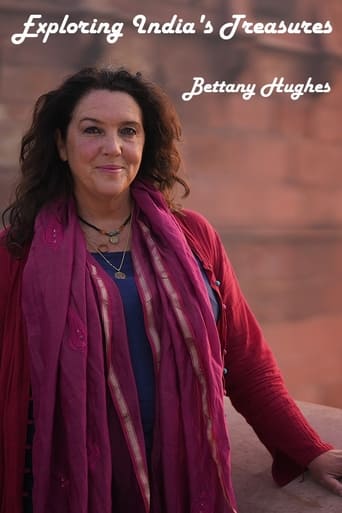Journeys in Japan Season 5
Journeys in Japan provides an eye-opening look at the many unique places to visit in Japan. English-speaking visitors travel the length of the country, exploring the culture, meeting the local people, visiting historic sites and offering travel hints rarely found in guidebooks.
With 30 Day Free Trial!
Journeys in Japan
2010 / TV-GJourneys in Japan provides an eye-opening look at the many unique places to visit in Japan. English-speaking visitors travel the length of the country, exploring the culture, meeting the local people, visiting historic sites and offering travel hints rarely found in guidebooks.
Watch Trailer
Journeys in Japan Season 5 Full Episode Guide
Japan has been the land of paper since ancient times. The country developed a unique culture of using washi (lit. Japanese paper) for diverse purposes. Echizen washi, traditionally produced in Echizen City, Fukui Prefecture, has especially been chosen for imperial ceremonies and for securities, diplomas, certificates and other important documents. The Goka district of Echizen is home to papermakers renowned for its high-quality handmade washi. The area is the only place in Japan where a deity of paper is worshipped. David Wells, a chef of Japanese cuisine, visits the district where washi is very much a part of people's lives, and discovers a deep world.
Yokohama is home to one of the oldest ports in Japan. It opened its doors to the world in the mid-19th century, becoming the birthplace of all things modern and attracting a foreign population. Our traveler, French photographer, Chloe explores the many faces of this multicultural city.
The Izumo area of Shimane Prefecture, in western Japan, is an ancient land of myths and legends. It is famous throughout Japan for its handicrafts (mingei in Japanese). In Yasugi, weavers prepare the complex indigo-dyed Hirose-gasuri fabric. And in Oku-Izumo, there is a long history of swordsmiths forging traditional tama-hagane steel to produce samurai swords. On this episode of Journeys in Japan, French designer Maïa Maniglier explores the beauty of the arts and crafts created in this area, where people still feel connection with nature.
Tomonoura in Hiroshima Prefecture is known for its picturesque location and historic neighborhoods. It lies halfway along the coast of the Seto Inland Sea, in western Japan. In the Edo Period, up to the mid-19th century, it was a busy, bustling port. And even today, it looks little changed. For that reason, it has been used as a location for many movies, both Japanese and foreign. On this episode of Journeys in Japan, Charles Glover discovers the history, the vibrant life and the beautiful environment of Tomonoura.
Shodoshima is the 2nd largest island in the Seto Inland Sea. Blessed with warm, mild weather, the island has nurtured a distinctive culture. Traveler Daniela Shiga enjoys local food, a kabuki performance and a magical hike at the peak of autumn.
Wakasa Bay in Fukui Prefecture is one of the best fishing grounds in all of Japan. It lies about 70 kilometers north of Kyoto and, for over 1,200 years, fish merchants in this area have supplied seafood from here to the old capital. One of the most important fish has long been mackerel, which is served as sushi in high-class restaurants. The network of routes used by the traders to carry this fish from the coast of Fukui to Kyoto came to be known as the Mackerel Road. On this episode of Journeys in Japan, John Moore visits the city of Obama, on Wakasa Bay, which was the starting point of the Mackerel Road. He savors many wonderful mackerel dishes. And he visits a workshop of that produces high-quality traditional lacquer chopsticks.
Japan's ancient capital Kyoto has a history of more than 1,000 years. Philippine TV host and athlete Andrew "Drew" Arellano visits for the first time to learn about its traditional culture. He undergoes a bit of spiritual training and also gets a rare invitation to observe the life of apprentice Geisha, called maiko. This episode of Journeys in Japan is a collaboration with a popular Philippine travel program. Film crews from both Japan and the Philippines worked together.
On this episode of Journeys in Japan, photographer Kit Pancoast Nagamura travels to 2 towns in northern Kumamoto Prefecture, in Kyushu. In Yamato, she observes an autumn festival, which has been held for more than 250 years. In Yamaga, Kit visits an old theater that was built just over a century ago.
In the center of Yamagata Prefecture, far to the north of Tokyo, 3 sacred mountains rise above the fertile Shonai Plain. Called Dewa Sanzan (the Three Mountains of Dewa), they comprise: Mt. Haguro; Mt. Yudono; and Mt. Gassan, the highest of the 3, at about 2,000 meters. These 3 mountains have been a major center for esoteric religious practices known as mountain worship for over 1,400 years. In Part 2, William immerses himself in a 3-day yamabushi training deep in the Dewa Sanzan mountains.
In the center of Yamagata Prefecture, far to the north of Tokyo, 3 sacred mountains rise above the fertile Shonai Plain. Called Dewa Sanzan (the Three Mountains of Dewa), they comprise: Mt. Haguro; Mt. Yudono; and Mt. Gassan, the highest of the 3, at about 2,000 meters. These 3 mountains have been a major center for esoteric religious practices known as mountain worship for over 1,400 years. In a 2-part series of Journeys in Japan, aikido master William Reed visits Dewa Sanzan to explore the practices of traditional mountain worship and to discover the ways in which the local people pay their respects to the mountains.
Gujo-hachiman, a city defined by water, is located upstream on the Nagara River and at a junction where 3 rivers converge. This rural city is at its busiest in summer - the season of the Gujo Odori, which is a Bon Odori dance festival that has been registered as an important intangible folk-cultural property and lasts for roughly 30 days. The climax of the Gujo Odori is the Tetsuya Odori when people dance through the night until dawn for over 4 days. Gujo-hachiman is also known for its beautiful townscape that retains old waterways. Our traveler, reporter Akane Nakajima, learns Gujo Odori dances and explores a traditional life blessed with water.
Ine is a beautiful fishing village located in northern Kyoto Prefecture. It is famous for its distinctive architecture called Funaya. These wooden structures, which are nestled together on Ine's bay, consist of a boat garage on the 1st floor and living quarters on the 2nd. Ine is also deeply associated with the popular folktale "Urashima Taro". Our traveler, Peter MacMillan meets people living with the sea and discovers their legends.
The Niyodo River in Shikoku is one of Japan's most beautiful rivers. It is known for the clarity of its water, which has such a distinctive aquamarine color that it's become known in Japan as "Niyodo Blue". Sara Ariafar explores the river and the surrounding forests. She meets with people living in the area. And she joins them as they relax with midsummer pastimes.
The Tomioka Silk Mill was the first modern factory ever built in Japan. Completed in 1872, it marked a major step for the country in its transformation from a traditional society to a high-tech industrialized nation. The mill was built by Japanese under the guidance of a young French engineer called Paul Brunat. He chose the location in Tomioka, at the foot of Mt. Myogi, because there was a long tradition of skilled artisan silk production and he found the local people took great care of their silkworms. The architecture of the mill combines both Japanese and western elements. Because the mill has been preserved so well, almost in the same condition as when it was built, it (together with related sites) was designated a UNESCO World Heritage Site in June this year. On this episode of Journeys in Japan, the Tomioka Silk Mill is introduced by Damien Robuchon who works for the Tomioka City Government.
Okinawa, the southernmost prefecture of Japan, was formerly an independent kingdom, known as Ryukyu. Even today, the distinctive local traditions and culture from the days of the Ryukyu Kingdom are kept alive in the islands of Okinawa. An important part of this heritage is karate. Now practiced as a sport around the world, karate originated as a martial art that was practiced in secret, with esoteric teachings passed down from one generation to the next by the Ryukyu nobility and warriors. On this episode of Journeys in Japan, aikido master William Reed travels to Okinawa to discover the essence of karate in its homeland.
Tohoku's Sanriku Coast facing the Pacific Ocean is a ruggedly, dynamic landscape as well as home to world-renown offshore fishing grounds. With bitter cold winters and periodic tsunamis, life in Tohoku can be harsh and is said to have contributed to the culture and survival skills of Iwate's inhabitants. After the March 11 earthquake/tsunami disaster, establishing community become a priority and was prime in inaugurating the road to recovery. On this episode of Journeys in Japan, radio personality and diving blogger, Bonnie Waycott rides the newly reopened Minami Riasu Line to join the Sanriku Volunteer Diving Club for a marine conservation holiday.
Kushiro Shitsugen, Japan's largest wetland, is a rich habitat for rare flora and fauna. Our traveler Dean Newcombe will explore the vast marshland by canoe with a veteran guide, observing the wildlife at close range and camping out at night. Later Dean continues on to Lake Kussharo, where he enjoys hot springs and a stay at a youth hostel. On his last day, he explores the Sakura Falls and observes more magnificent nature. On Journeys in Japan, we'll experience the heartbeat of Kushiro!
The Shiretoko Peninsula lies at the far northeastern tip of Hokkaido, Japan's northernmost prefecture. It is an area of remarkable natural beauty, with a vibrant diversity of wildlife both on land and in the sea. Since 2005, it has been designated as a UNESCO World Heritage Site. It is one of Japan's most unexplored regions, and one of the few places in the world where bears have an undisturbed natural habitat. For the Hokkaido brown bears living there, the mountains, rivers and virgin forests are an unspoiled paradise. On this episode of Journeys in Japan, Dean Newcombe travels to Shiretoko to discover its pristine environment.
From Kaga Yuzen silk dyeing and Kutani porcelain to teahouses, traditional culture dating back more than 400 years is alive in Kanazawa City, Ishikawa Prefecture. Every June, the Hyakumangoku Matsuri Festival takes place in honor of Maeda Toshiie, the first lord of the Kaga domain, who laid the foundation of Kanazawa's rich culture. The festival features various traditional performances passed down for generations, including taiko drumming, a ritual lion dance and Kagatobi, an acrobatic spectacle of firemen atop ladders. Traveler Daniela Shiga meets many people who are upholding Kanazawa's rich traditions while also introducing innovation.
Azumino, in Nagano Prefecture, is known for its beautiful tranquil landscapes, which were praised by the writer Yasunari Kawabata, who won the Nobel Prize for literature. The Hotaka area, at the foot of the Northern Alps range of mountains, has peaceful paddy fields that stretch to the horizon. Alongside the roads, you can find statues of folk deities known as Dosojin. On this episode of Journeys in Japan, Chef David Wells visits Azumino at the height of spring. He explores the area by bicycle. He meets people who are living there and farming in harmony with nature. And he discovers ancient beliefs that still connect the local people with this rich landscape.
Wajima, in Ishikawa Prefecture, is located on the northwestern coast of the Noto Peninsula, which juts out into the Sea of Japan. It is known globally for its exquisite Wajima lacquerware. The atmospheric city is blessed with the abundant gifts of nature and rich traditions. Among them, the Shiroyone Senmaida terraced rice fields stand out. Wajima has also passed down an ancient performing art form called "Gojinjo Daiko", which involves drumming and dancing. Our traveler on Journeys in Japan is American poet and photographer, Kit Pancoast Nagamura. She visits venerable Wajima lacquerware workshops and stays at a traditional inn that serves meals on heirloom lacquer tableware. She also experiences how to cultivate young rice plants at the Shiroyone Senmaida terrace and enjoys a spectacular performance of Gojinjo Daiko. Kit gains insight into how the people of Wajima have nurtured, and preserved, deep traditions, including their stunning lacquerware.
Minakami Town in Gunma Prefecture is blessed with abundant nature and people can enjoy various outdoor activities. As Minakami is in a convenient location that can be accessed by Shinkansen bullet train in an hour from Tokyo, it is also drawing foreign tourists recently. This time, the traveler JJ enjoyed rafting and canyoning, as well as fishing on a lake and picking wild vegetables in mountains.
The Izumo district of Shimane Prefecture is revered as the heartland of the gods. It is home to Izumo Taisha, one of the largest and most venerated Shinto shrines in all Japan. Renovation work is conducted on the shrine every 60 years, to renew the buildings and keep alive the skills and craftsmanship required for their maintenance. Since the completion of the latest renewal work last year, people have been flocking from around the country to worship in front of the honden (main shrine), as its spiritual power is believed to have increased. On this episode of Journeys in Japan, Peter MacMillan is shown around the precincts of Izumo Taisha. He witnesses the rituals of the annual Daisairei Festival, held each year in May. He relaxes at one of the most highly regarded hot springs in the area, where the ancient deities are believed to have bathed. And he tries his hand at making magatama, a form of power stone associated with this sacred region since ancient times.
In this episode of Journeys in Japan, poet and artist Peter MacMillan visits Yoshino Town in Nara Prefecture, which many consider to be the best site for viewing cherry blossoms in Japan. On his walk up Mt. Yoshino, he passes by some 30,000 cherry trees in full bloom. These trees are not indigenous. Starting about 1,300 years ago people began planting them for religious reasons. They are still regarded as sacred. Peter comes across an annual festival related to the cherry trees, which dates back more than 1,000 years. He gains insights into why the Japanese have so much affection for cherry blossoms. Peter also stays overnight in temple lodgings to experience the beauty of nocturnal cherry blossom viewing.
Takamatsu, facing the Seto Inland Sea, prospered as a castle town. We tour places of scenic beauty, as well as historic sites associated with the Takamatsu clan who ruled the area. These include the ruins of Takamatsu Castle, which was called a floating sea fort, and the expansive Ritsurin Garden with its 1,400 pine trees, ponds and hills. Our traveler Mailys visits what is said to be the longest shopping arcade in Japan, and tastes a popular Kagawa dish at a restaurant there. She explores many traditional crafts handed down from one generation to the next in Takamatsu.
The 2nd installment of our series on great spring destinations near Tokyo features a local train and flowers in the Boso Peninsula in Chiba Prefecture. The Isumi Railway runs from the coastal town of Isumi to the castle town of Otaki. Although the Boso Peninsula is only about 90 minutes by car or bus from downtown Tokyo, the landscape along the 30-kilometer railway route is rural and sleepy, with cherry blossoms and nanohana rape blossoms in spring. The charming yellow train cars that conjure up the post-War years are hugely popular with tourists, including young female railway fans. The railway's 14 stations have a retro feel, as well. Our traveler on this episode of Journeys in Japan is Armenian writer and model, Mari Khunoian, who studied Japanese at Moscow State University. The self-described railway enthusiast sometimes contributes articles to a Russian railway journal.
The historic city of Kamakura is one of the most popular tourist spots in Japan, thanks to its numerous temples and shrines. Surrounded on three sides by hills and on the fourth side by the sea, Kamakura is a sanctuary blessed with a rich natural environment. Thanks to the mild climate, the city is also known for the high quality produce grown by the local farmers. Every day, a wide variety of vegetables are on sale in the Kamakura Farmers' Market, which was set up almost 90 years ago. David Wells is a chef who lives and works in Japan, preparing Japanese cuisine. On this episode of Journeys in Japan, David visits the Kamakura Farmers' Market, meets the farmers and talks with the chefs who like to use the superb local ingredients. He learns that Kamakura is more than just a tourist attraction - it is a place where the local people enjoy a rich quality of life.
Kurashiki flourished a couple of centuries ago in the Edo Period. An historic district with old merchant residences and storehouses has been beautifully preserved. Kurashiki is still a vibrant city and is also the center of Japan's famed denim industry, which adopts traditional textile and dyeing techniques. In this episode of Journeys in Japan, singer-songwriter and painter Rie Fu learns about appeal of the city through encounters with its people and historical anecdotes.
In the 2nd part of our Kyoto series, Sara Ariafar visits the ancient capital to explore the culture of incense. Japanese have enjoyed scents in unique ways for more than 1,000 years. She learns about how the aristocracy used incense in aesthetic and entertainment pursuits. She is also invited to experience Kodo, an incense ceremony.
Every year on March 3, families throughout Japan celebrate the Hinamatsuri, or Doll Festival, to pray for the healthy growth of their daughters. They put up displays of special Hina dolls, which are modeled after the Emperor and Empress during the Heian Period, more than 1,000 years ago. There are also dolls representing the nobility, court musicians and others. On this episode of Journeys in Japan, Tania Zachidniak discovers the customs and tastes of the Doll Festival in Kyoto, and meets craftsmen who are keeping the traditions alive.
Sanjo City in Niigata Prefecture has been known for its blacksmiths since the 17th century. At that time, the area was susceptible to flooding, often resulting in famine. Farmers were encouraged to forge nails as a sideline to their agriculture, to help them survive in lean years. Sanjo became an important production center for wakugi, the Japanese nails used in building shrines, temples and other wooden structures. That tradition continues to this day, with one local artisan producing nails for the periodic rebuilding of the Grand Shrine of Ise, in Mie Prefecture.
The Kohoku region, north of Lake Biwa, is home to many culturally important Buddhist sculptures. The area around Nagahama City is known for its worship of the bodhisattva Kannon. Buddhist statuary - some over 1,000 years old - have been preserved by villagers, instead of being enshrined in temples. Our traveler Peter MacMillan meets some of these guardians and discovers their warm faith.
The town of Nagatoro lies in the hills of Chichibu, in Saitama Prefecture, about 2 hours northwest of Tokyo, surrounded by forested mountainsides close to the peak of Hodosan. Because of its rich natural environment, the whole town has been designated as a natural park. On this episode of Journeys in Japan, Lemi Duncan visits the Nagatoro area.
The Sanriku Coastal Region experienced severe damage due to the March 2011 Great East Japan Earthquake's resulting tsunami. On Journeys in Japan, Jessica Claros visits recovering areas along the Sanriku coastline in northeastern Japan. She gets close to the Sanriku lifestyle through her encounters with local people living in harmony with the sea.
The hot spring resort of Yunishigawa is associated with an historic episode from the 12th century. Defeated in the Dan-no-Ura Battle, a group of fleeing Heike samurai settled deep in the mountains of present-day Tochigi Prefecture, where they found a source of hot springs. On Journeys in Japan, model and reporter Akane Nakajima visits the village. Interested in martial arts and the way of the samurai, she tries to identify with the samurai spirit through exchanges with Heike descendants.
On January 17, 1995, the Kansai region of Western Japan was hit by a massive earthquake. The city of Kobe suffered massive damage, and many neighborhoods were completely flattened. 19 years later, the city has been rebuilt and there is a whole generation of young people who have no memory of the disaster. On this episode of Journeys in Japan, copperplate print artist Peter Miller visits Kobe to see how the city has changed, to meet with the local people and to attend a ceremony to mark the anniversary of the Great Hanshin Earthquake.
On this episode, an architect James Lambiasi travels to Inuyama City and Nagoya City in Aichi Prefecture, on a trip to discover the origin of the spirit of "making things" in Japan. On this trip, we learn about the spirit and values of "making things" passed on from old times to the current age in Japan.
This episode of Journeys in Japan travels to Hiroshima, a city attracting attention as a treasure trove of quality architecture. Now nearly 70 years since the devastation of the atomic bomb, the program visits the city sights from the 3 viewpoints of architecture, war and tourism, exploring the city's history of urban development and architecture as it was rebuilt after the world's first nuclear attack.
Murakami, in Niigata Prefecture, northwestern Japan, has a long history of catching and processing salmon from the Miomote River that runs through the city. Over the centuries, the area has developed many customs and traditions, as well as numerous recipes for preparing the fish. On this episode of Journeys in Japan, George Bourdaniotis watches salmon being caught by the local fishermen.
Free Trial Channels
Seasons



